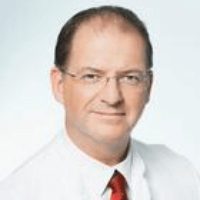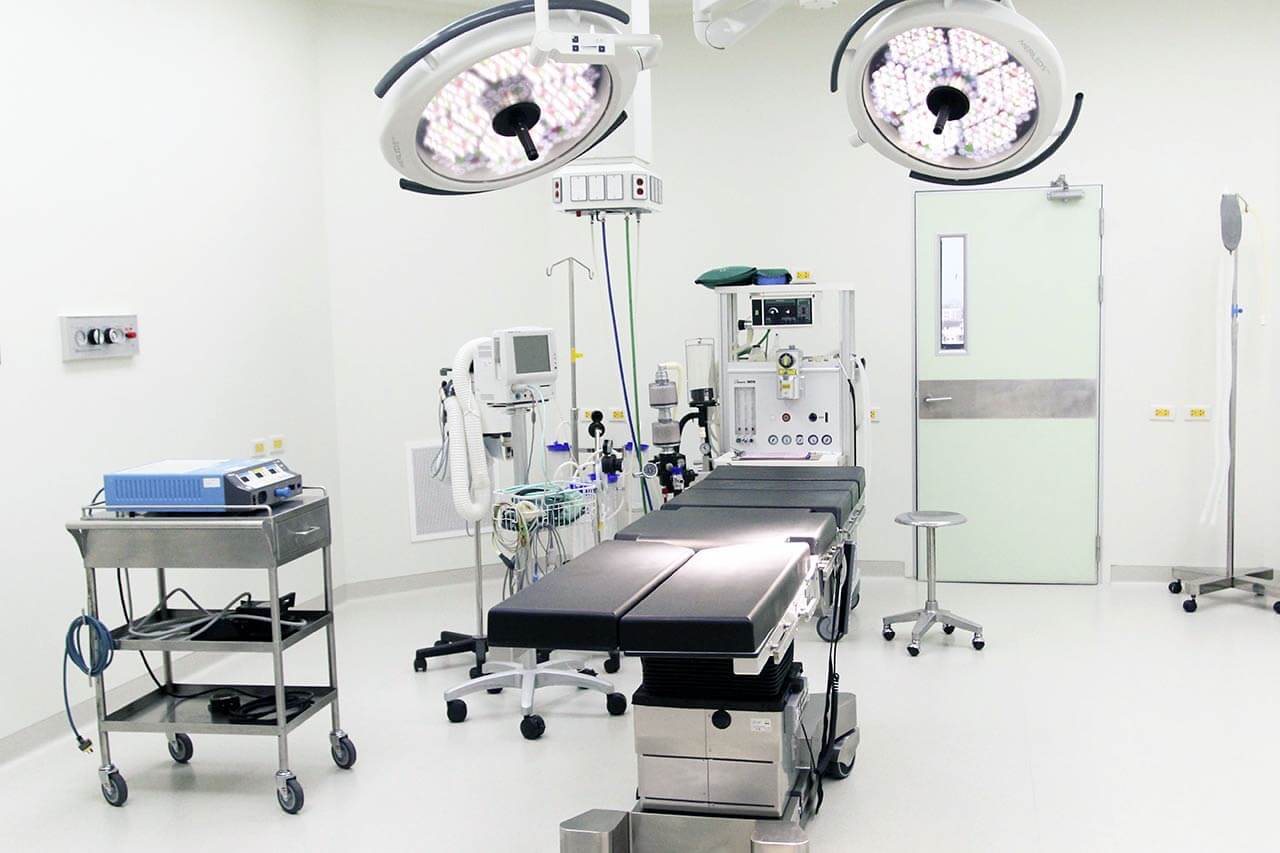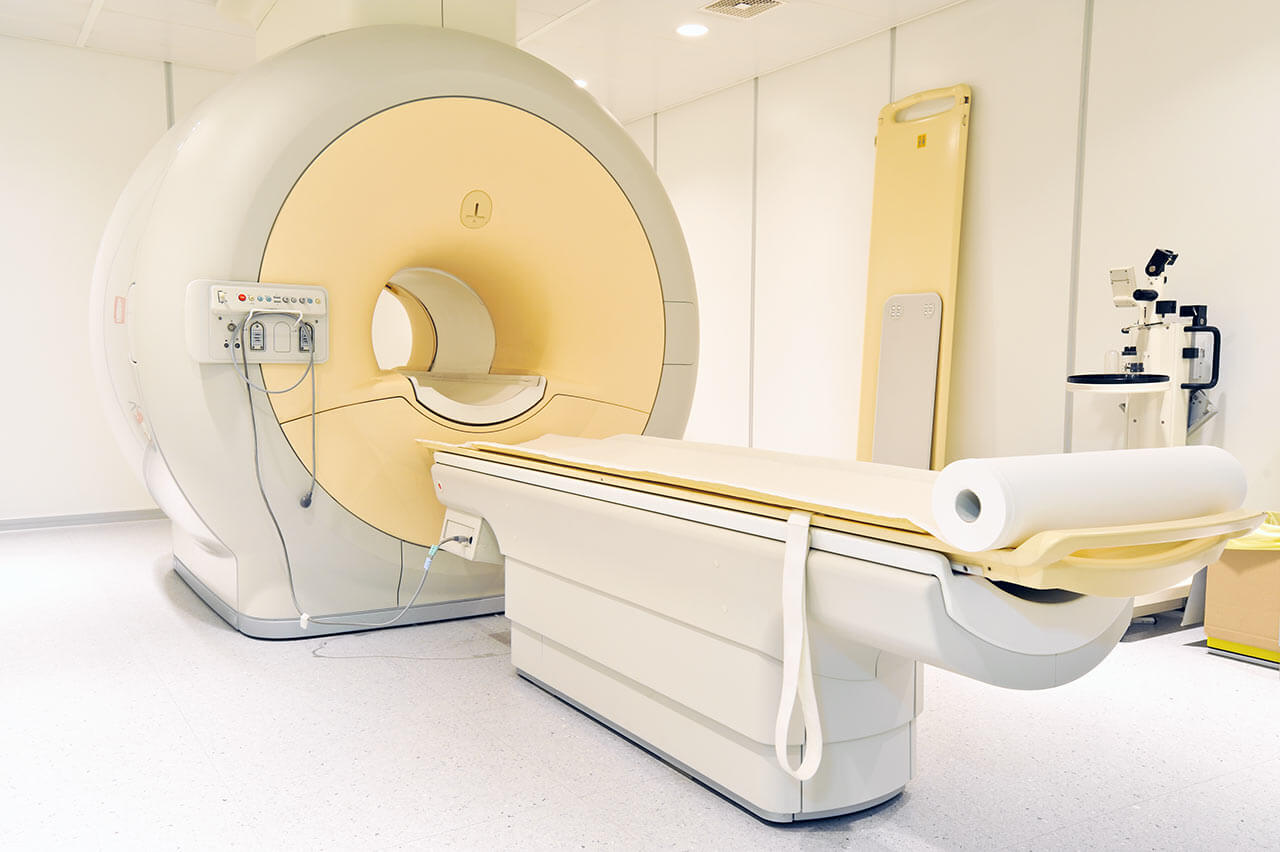
The program includes:
- Initial presentation in the clinic
- clinical history taking
- physical examination
- review of medical records
- laboratory tests:
- complete blood count
- general urine analysis
- biochemical analysis of blood
- TSH-basal, fT3, fT4
- tumor markers
- indicators of inflammation
- indicators blood coagulation
- ultrasound
- CT/MRI scan
- biopsy and histological examination
- preoperative care
- resection of tumor
- histologically and immunohistochemically examination of the remote tissues
- symptomatic treatment
- control examinations
- the cost of essential medicines and materials
- nursing services
- full hospital accommodation
- explanation of future recommendations
Required documents
- Medical records
- MRI/CT scan (not older than 3 months)
- Biopsy results (if available)
Service
You may also book:
 BookingHealth Price from:
BookingHealth Price from:
About the department
The Department of Pediatric Surgery at the Hospital Schwabing Munich provides the full range of surgical treatment for young patients from different age groups. Most surgical procedures are performed using minimally invasive techniques, which are the standard of modern surgery today. In addition, many operations are performed on an outpatient basis, and thus the child can go home immediately after surgery. It should be noted that the department's specialists have gained invaluable experience in many areas of pediatric surgery, which is known far beyond the region. For example, the department is distinguished by special competence in the treatment of congenital malformations, severe injuries and bone fractures, surgical treatment of urologic diseases, burns and their consequences, reconstructive surgery for pathologies of the skull bones, etc. The department's clinical activities are marked by the highest quality certificate in the field of pediatric medicine in Germany – "Ausgezeichnet. Für Kinder" certificate. The department provides treatment to more than 2,300 young patients every year. They receive not only top-class medical service, but also care and understanding. The medical staff strives to establish friendly relations with children and make their stay in the medical facility as comfortable as possible. The department is headed by Prof. Dr. med. Stuart Hosie.
The department's specialists cooperate closely with doctors from the Department of Pediatric and Adolescent Medicine. The cooperation of pediatricians plays a special role in the treatment of congenital malformations and cancers in children. Such an approach helps to provide young patients with comprehensive and effective treatment according to the highest medical standards. During the development of a treatment regimen, the doctors must take into account the characteristics of the growing child's body and choose exactly the type of therapy, which will not harm or will pose a minimal negative impact on the child's development and his quality of life in the future.
In their clinical practice, the department's doctors often have to deal with the correction of craniosynostosis – early closure of the cranial sutures, which leads to a decreased cranial volume, its deformation and the development of intracranial hypertension. This defect refers to pathologies of high severity, since its surgical correction is complicated by the intervention in the immediate vicinity of the brain. Despite the complexity of treatment, the department's pediatric surgeons have sufficient experience and clinical knowledge to achieve successful results. Prior to the operation, each stage of the intervention is carefully planned with the participation of pediatric surgeons, plastic surgeons and neurosurgeons. The surgical correction of craniosynostosis is recommended from 6 months of a child's life, since the skull grows very intensively until the age of 1 year, and untimely correction can lead to a number of irreversible changes. When performing the operation, the surgeons use all their skills to restore the natural shape of the child's skull and achieve an optimal aesthetic result. The specialists of the medical facility can also be proud of their outstanding results in the field of craniofacial malformations, including Apert syndrome and Crouzon syndrome.
The surgical correction of hydrocephalus and spina bifida is also one of the priorities of the department's medical team. In most cases, spina bifida is diagnosed in a child at the stage of prenatal development, during an ultrasound examination, while hydrocephalus is more often detected after the birth of the baby. Pediatric surgeons plan and perform surgical interventions to correct spina bifida and hydrocephalus jointly with neurosurgeons. Each clinical case is unique and requires an individual approach. The operations on the brain and spine necessarily involve the use of state-of-the-art surgical microscopes and neuronavigation systems in order to exclude damage to the brain and spinal cord. After surgery, children receive appropriate care and follow-up examinations to assess the results of surgical repair.
The surgical treatment of acute abdominal diseases and abdominal malformations is also an integral part of the clinical practice of the department's doctors. Of special interest are surgical procedures for appendicitis, inguinal and umbilical hernias, intestinal obstruction, chronic inflammatory bowel disease, short bowel syndrome, anterior abdominal wall defects, intestinal malrotation, etc. The high professionalism of the department's surgeons allows them to perform operations of any complexity – from minimally invasive surgery to complex major open surgery. Preference is always given to the most sparing type of surgical treatment, after which the child will be able to recover as soon as possible.
The department's service range is complemented by the surgical treatment of cancers in children. The department's surgeons specialize in surgery for neuroblastoma, nephroblastoma, soft tissue sarcomas, germ cell tumors, hepatoblastoma and other tumors. In most cases, surgical resection is complemented by chemotherapy. The treatment regimen for each young patient is developed individually, at the tumor boards, which helps to achieve the best treatment results.
The department's range of medical services includes:
- Surgical treatment of bone fractures and other injuries
- Surgical correction of skull malformations
- Craniosynostosis
- Congenital craniofacial anomalies
- Surgical treatment of burns with fire and hot liquids
- Surgical treatment of hydrocephalus
- Surgical treatment of spina bifida
- Surgical treatment of acute abdominal diseases
- Appendicitis
- Inguinal and umbilical hernias
- Gallstone disease
- Bowel obstruction
- Chronic inflammatory bowel disease
- Meckel's diverticulum
- Necrotizing enterocolitis
- Short bowel syndrome
- Surgical correction of congenital abdominal malformations
- Inguinal hernias
- Pylorospasm
- Esophageal dysfunction
- Anterior abdominal wall defects
- Atresia and stenosis of various parts of the intestine
- Intestinal malrotation
- Diaphragmatic hernia
- Surgical correction of congenital anorectal malformations
- Hirschsprung's disease
- Anal atresia
- Surgical treatment of urologic diseases in boys, diseases of the urinary tract, bladder and kidneys
- Congenital malformations
- Undescended testicles
- Hypospadias
- Vesicoureteral reflux
- Varicocele
- Testicular torsion and other acute testicular pain syndromes
- Phimosis
- Surgical treatment of benign and malignant tumors in children
- Neuroblastoma
- Nephroblastoma (Wilms' tumor)
- Soft tissue sarcomas
- Germ cell tumors
- Hepatoblastoma
- Surgical correction of congenital malformations in infants
- Anterior abdominal wall defects and diaphragmatic hernias
- Upper gastrointestinal tract atresia
- Anorectal malformations
- Congenital craniofacial anomalies and craniosynostosis
- Thoracic malformations
- Heart defects
- Vascular malformations
- Other surgical options
Curriculum vitae
- 1989 - 1991 Assistant Physician in the medical facilities at the University of Duesseldorf.
- 1991 - 1995 Assistant Physician, Departments of Pediatric Surgery, General Surgery and Pediatrics, University Hospital Mannheim.
- 1995 - 1997 Acting Head of Department of Pediatric Surgery, University Hospital Mannheim.
- 1997 - 2006 Senior Physician in the Department of Pediatric Surgery at the University Hospital Mannheim, and Head of the Department of Neonatal Surgery and Pediatric Urology.
- 2003 Habilitation and Venia Legendi, Faculty of Medicine in Mannheim, Heidelberg University.
- Since 2006 Professor of Pediatric Surgery, Technical University of Munich and Head of the Department of Pediatric Surgery at the Hospital Schwabing Munich.
Clinical Interests
- Correction of anorectal and urogenital defects in children.
- Pediatric urology.
- Minimally invasive surgery.
- Abdominal and thoracic surgery.
- Pediatric cancer surgery.
Memberships in Professional Societies
- Member of the German Society for Pediatric Surgery.
- Member of the Extended Council of the German Society for Pediatric Surgery (since 2014).
- President of the Congress of the German Society for Pediatric Surgery (2015).
- Head of the DRG Working Group of the German Society for Pediatric Surgery (until 2016).
- Member of the European Paediatric Surgeons' Association (EUPSA).
- Member of the Educational Section of the European Paediatric Surgeons' Association (EUPSA).
- Member of the Colorectal Team Abroad – an international group of pediatric surgeons who provide medical care to children with anorectal malformations on overseas missions.
- Scientific Advisory Board "Soma e.V." (self-care organization for people with anorectal malformations).
Photo of the doctor: (с) München Klinik Schwabing
About hospital
The Hospital Schwabing Munich is one of the oldest medical facilities in the Schwabing region with a history of over 100 years. The hospital is proud of the excellent state-of-the-art equipment, modern infrastructure, highly professional medical personnel and location in a picturesque park area. The medical complex is the academic hospital of the University Hospital of Ludwig Maximilian University of Munich and the University Hospital Rechts der Isar Munich, therefore, it offers unique innovative diagnostic and treatment methods. The treatment can be provided both on an inpatient and outpatient basis. The work of the medical center is based on an individual approach to each clinical case, as well as on the strictest adherence to high standards of quality, hygiene and safety.
The hospital has a large number of beds for patient hospitalization – more than 700 beds. The medical facility admits over 125,000 patients for diagnostics and treatment, and this figure grows steadily every year, which indicates the authority of the hospital not only in the region, but also throughout the country. In addition, the medical center often admits foreign patients for medical treatment.
The hospital presents almost all the main areas of modern medicine, including oncology, surgery, gynecology, gastroenterology, endocrinology, diabetology, otolaryngology, pulmonology, thoracic surgery, orthopedics, traumatology, neurosurgery, etc. In addition, the specialists of the hospital admit young patients for treatment, providing them with proper medical care.
Particular attention should be given to the competent team of doctors who have vast clinical experience, thanks to which they provide patients with effective treatment even in particularly complex clinical cases. According to the prestigious Focus magazine, many doctors of the clinic have been repeatedly ranked among the best German specialists. The experts also take care of the patients' comfort during treatment, surround them with care and show a humane attitude, supporting patients on their way to recovery.
Photo: (с) depositphotos
Accommodation in hospital
Patients rooms
The patients of the Hospital Schwabing Munich live in comfortable single, double and triple rooms with a modern design. The patient rooms have everything necessary for maximum comfort of patients. Each patient room has an ensuite bathroom with shower and toilet. All patient rooms are equipped with a telephone, which is available for an extra fee via a special card. The standard room furnishings include an automatically adjustable bed, a bedside table, a wardrobe, a table and chairs for receiving visitors. Wi-Fi is also available in the patient rooms.
If desired, the patient can stay in the enhanced comfort patient room, which additionally includes a safe, a minifridge and upholstered furniture.
The hospital also has a library with a large assortment of books, magazines, CDs and DVDs, a shop, a hairdressing saloon and a cafe where the patient can enjoy tasty snacks or a cup of hot tea, aromatic coffee and soft drinks.
Meals and Menus
The patients of the hospital are offered tasty and healthy three meals a day: breakfast, lunch and dinner. All dishes are cooked from fresh food available in the region. Breakfast and dinner are served buffet style, while for lunch the patient has a choice of three menus.
If you are on a specific diet for some reason, you will be offered an individual menu. Please inform the medical staff about your dietary preferences prior to the treatment.
Further details
Standard rooms include:
Religion
The religious services are available upon request.
Accompanying person
During the inpatient program, the accompanying person can live with the patient in a patient room or a hotel of his choice. Our managers will help you choose the most suitable option.
Hotel
During the outpatient program, the patient can stay at the hotel of his choice. Our managers will help you choose the most suitable option.




